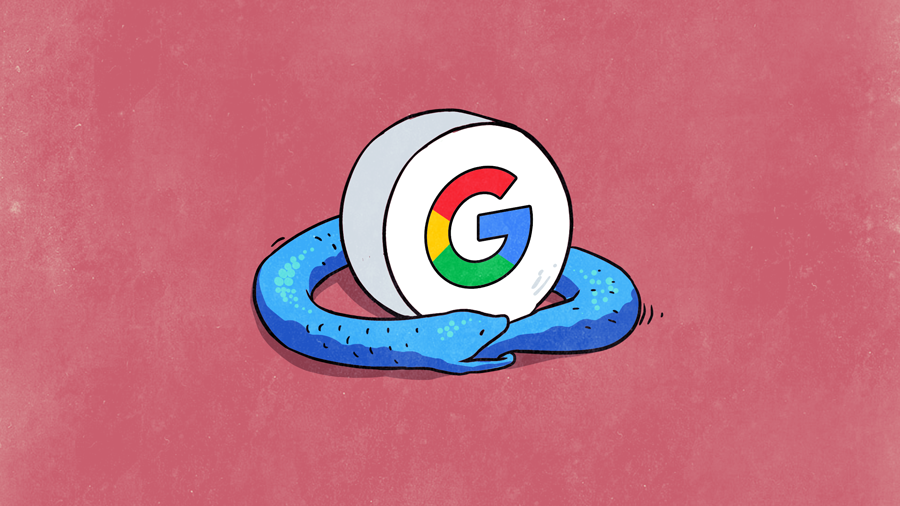In two back-to-back acquisitions, Alphabet’s Google is clearly showing an appetite for user-friendly startups.
Subscribe to the Crunchbase Daily
Within the same 24 hours, Google has acquired Dublin’s Pointy, which helps brick-and-mortar retailers list their products online, and scooped up Seattle’s AppSheet, which helps anyone create no-code applications, according to press releases (here and here).
The multinational corporation has acquired hundreds of companies (240 companies, per Crunchbase data), yet the back-to-back buys, both uniquely focused on user empowerment, caught our attention. So without further ado, let’s learn about the new additions to Google’s umbrella and what it means for the corporation.
Pointy
Pointy lets online retailers get physical products in their stories listed online instantly. The idea is that a local mom-and-pop store can get its stock online and be discovered by users looking to buy a specific product.
According to a blog post from Pointy founders Mark Cummins and Charles Bibby, the startup has been working with Google “over the past several years.” Its goal is to help people discover local stores and products, and with a nod to Google’s resources and ownership of search, the deal will move it to a larger scale.
In the post, the founders said services will continue as usual and remain focused on local retailers. I can’t help but pause here and think about the other e-commerce giant in the room, Amazon, which flouts speedy shipping for lazy shoppers. Pointy is betting it can convince users to get goods in real life if those same goods have an online presence.
It’s clear that Google’s algorithm within search is beyond powerful, so Pointy being in cahoots with the corporation doesn’t hurt. Second, let’s say you’re a local retailer specializing in making T-shirts about plant-based eating, and you’re also a Pointy customer. If someone Googles your name, they’ll see your direct, cheesy yet cheeseless, products right on the search page. Pointy says fewer clicks is an “effective way to attract more customers.”
Allowing its local retail clients to expand their online presence through automatic Google ads is another big plus. For its paid product, Pointy currently charges a one-time fee of $899.
Google paid $163 million for the company, reports TechCrunch.
As for Google’s second buy, it’s focused onto other Google technologies beyond searching.
AppSheet
With the new deal, AppSheet’s team, which is a little over 20 people, will join the Google Cloud team. AppSheet customers, per a Google release, will be able to develop applications using services like Google Sheets, Forms, Analytics and Maps. Customers also can integrate with data sources like AWS, Dropbox, and Salesforce.
In a blog post, AppSheet CEO Praveen Seshadri said the company’s no-code platform, which has been in action for five years, will continue to run its service. He added that in the future, AppSheet will innovate in verticals like financial services, retail and media and entertainment.
“There are more than a billion people in the world who could use custom mobile apps to be more productive at work,” AppSheet’s website reads. “However, whether in a large corporation or in a small business, it has proven way too expensive, complicated, and time-consuming to build apps with traditional code-based programming.”
In Closing
Google, like many large-beyond-belief tech companies, has long faced pushback from antitrust fighters. The two buys we learned about today signal how Google has eyes (and an appetite) for the grassroots companies among us, whether it’s getting local shops online or helping anyone create an app.
Plus, both Pointy and AppSheet claim they will operate as is, just with deeper integrations.
In a 2018 story on The Verge, one analyst touched on how Google’s acquisition spree is a secret way to get its hands on anything that could one day be a competitor. In order to limit Google’s influence, Open Markets’ Matthew Stoller said “the best thing to do would be to block Google from being able to buy any companies. … Suddenly, you have to compete with Google, you can’t just be bought out by Google.”
I caught up with Stoller today and he said this: “Why would Google buy two companies to make sure they operate as is? I mean the bottom line here is antitrust enforcers should be embarrassed.” As for Google buying a company that would make it more competitive e-commerce-wise against Amazon?
“If Amazon is too powerful in one sector, the right way to address the problem isn’t to make Google more powerful in that sector, but to take on the source of the problem,” he said. “The answer to Godzilla is not to wake Mothra.”
Illustration: Li-Anne Dias

Stay up to date with recent funding rounds, acquisitions, and more with the Crunchbase Daily.








67.1K Followers